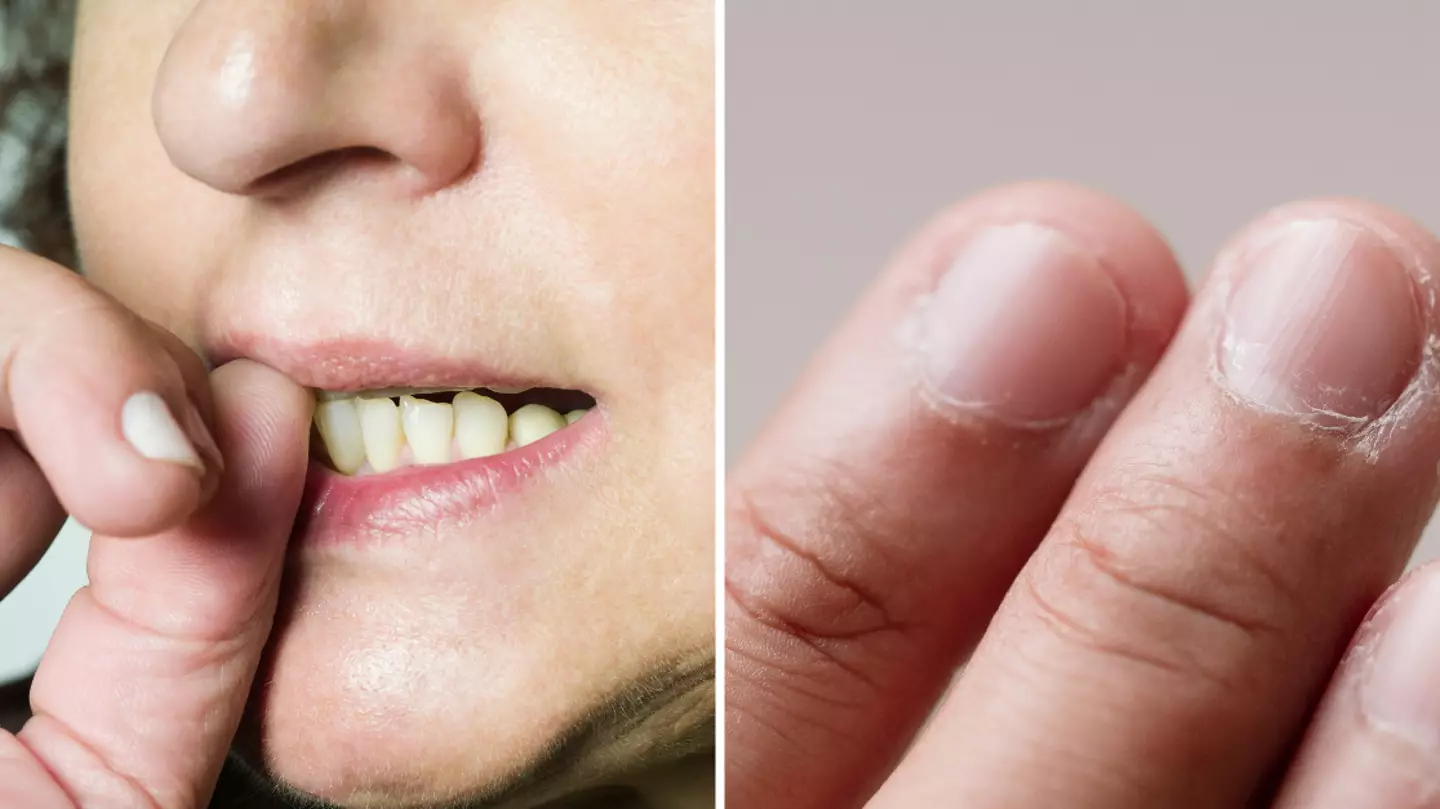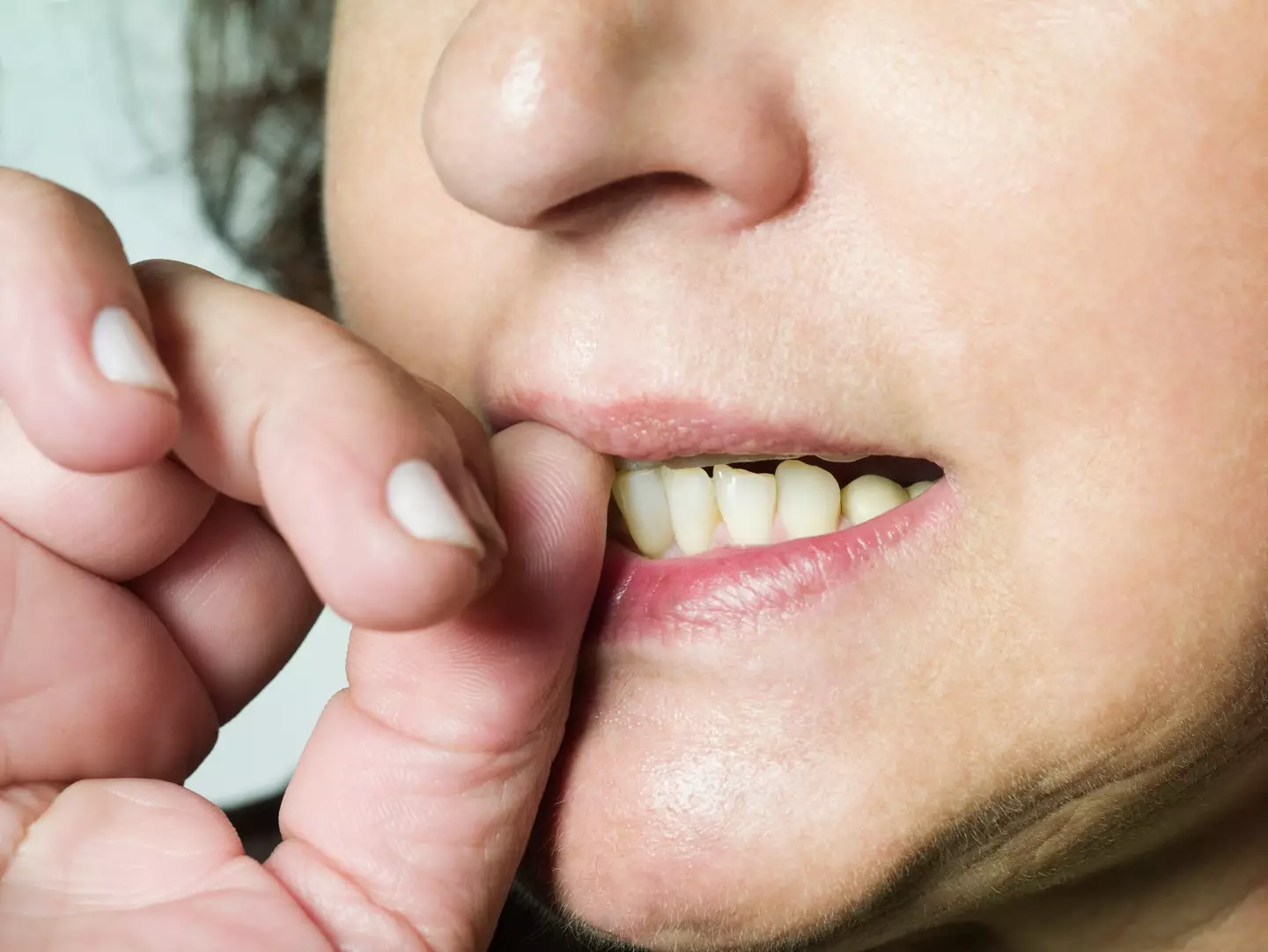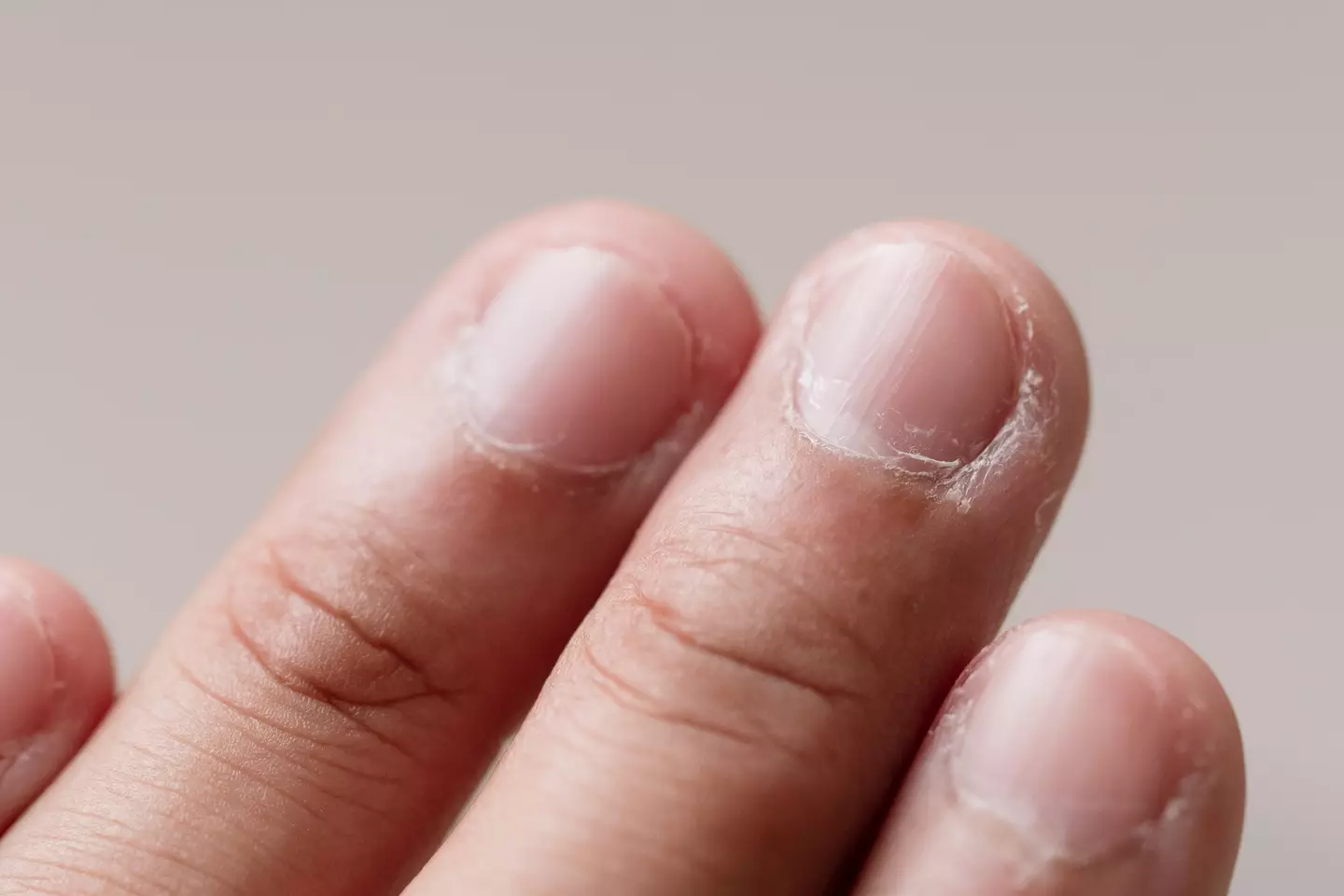
Whether it’s out in public or behind closed doors, you're likely to know someone who is constantly chewing on their nails, but when does it become a problem?
Nail biting is something that many people experience seeing or doing and is generally seen as a harmless task.
However, if you’re doing to regularly and not just because you can’t find the nail clippers, you might be wondering if you have an issue with it.
If you find yourself doing anything like the below, you might have a pathological nail-biting problem, which can be severe and actually dangerous for your body.
What is pathological nail biting?
Pathological nail biting is the uncontrollable urge to bite your nails off.
Advert
You could even be doing it right now and not realise.
It’s actually the the most common body-focused repetitive behaviour (BFRB), according to UCLA Health.
But those who suffer with a BFRB disorder might also have another thing they repeatedly do, such as picking their skin or pulling their hair out.
Related to obsessive-compulsive disorders, it's a habit that can be incredibly hard to stop.
Advert

How to know if you have a pathological nail-biting problem?
There is three key signs to knowing whether your nail problem is pathological.
Typically, you won’t be able to stop, even after repeated attempts to do so.
Advert
If you don’t bite your nails, it might trigger severe distress, shame, anxiety or even guilt.
It may even limit your ability to function, as you’re chewing on your nails so much.
If you feel like you’re ticking the signs off, you may have a pathological problem.
What can it do to you?
If you thought chowing down on your nails was harmless, think again.
Advert
Biting your nails can cause things like chipped teeth and tooth misalignment.
It could give you fungal infections in the nail bed, illnesses as you are ingesting bacteria and even jaw pain and skin infections.
It may even cause short term tissue damage to your fingers, nails or cuticles.
Long term issues can stem from ingesting the bacteria which can lead to stomach and intestinal infections.
Advert

How can you stop it?
It’s hard to change any habit which has been formed over a long time, especially if you’re relying on it for stress management.
However, there is hope.
If you feel as though you need to bite your nails because you have anxiety, or it’s comforting to you, you’ll need to first identify what triggers the situation when you feel the most likely to do it.
This could be when you’re most anxious or stressed, bored, or totally unaware.
Once you've found out your triggers, you can replace the behaviour with something else like gravitating towards a stress ball or even chewing on gum.
There are also remedies to try.
You could trim your nails so that there’s nothing there to bite or pain your nails with a bad tasting polish.
If that doesn’t work, try wearing gloves or go to a professional who could recommend therapy.
Topics: Health
